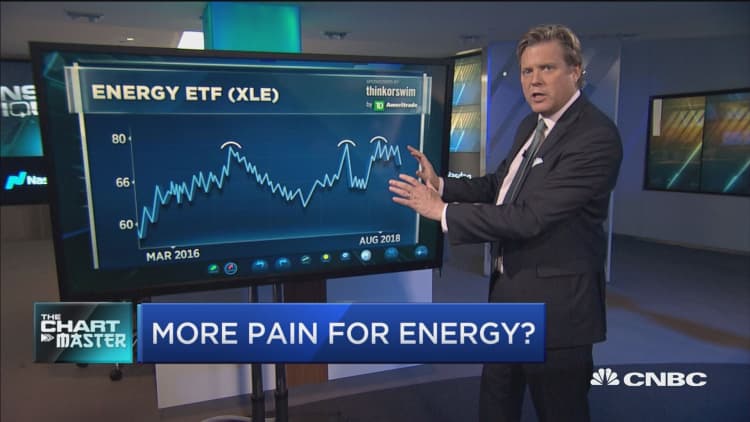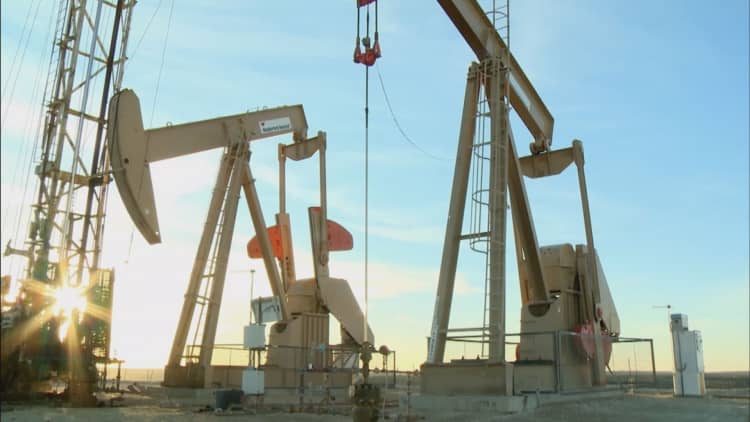
Oil futures rose on Monday after weeks of declines, supported by easing concerns over a potential trade war between the United States and China, as well as an expected fall in supply from Iran due to U.S. sanctions.
U.S. West Texas Intermediate (WTI) crude futures for September delivery ended Monday's session 52 cents higher at $66.43 per barrel. That contract expires on Tuesday. The October WTI contract was trading up 32 cents at $65.53 at 2:15 p.m. ET.
Brent crude futures, a benchmark for international oil prices, were up 57 cents, or nearly 1 percent, at $72.40 per barrel.
Last week, Brent declined for a third consecutive week, while WTI fell for a seventh week due to concerns about a slowdown in economic growth because of U.S.-Chinese trade tensions and weakness in many emerging economies.
However, China and the United States will hold trade talks this month, the two governments said last week, in an effort to resolve an escalating tariff war that threatens to engulf all trade between the world's two largest economies.

Still, White House economic adviser Larry Kudlow said Beijing should not underestimate President Donald Trump's resolve in what Kudlow called a "battle to eliminate tariffs and non-tariff barriers and quotas, to stop the theft of intellectual property and to stop the forced transfer of technology."
"Part of the weakness we've seen in crude oil has largely been due to trade as people are concerned that increasing tariffs and tensions on trade are going to increase the level of uncertainty and potentially reduce global GDP demand," said Brian Kessens, portfolio manager and managing director at Tortoise.
"Anything that reduces those tensions, you can see oil generally move back the other way."
Traders said U.S. sanctions against Iran were also supporting prices. The U.S. government has introduced financial sanctions against Iran which, from November, will also target the petroleum sector of OPEC's third largest producer.
On Monday, Iran asked the European Union to speed up efforts to save a 2015 nuclear deal between Tehran and major powers, which Trump abandoned in May. Most EU companies have pulled out of Iran for fear of U.S. sanctions and Tehran said France's Total had officially exited Iran's South Pars gas project.
"We continue to believe that despite all of the political goodwill that may exist in Europe, there is no practical way that many of the sizeable European buyers of Iranian crude can be protected from U.S. sanctions," JBC Energy said in a note.

However, China signaled it wanted to continue buying large volumes of Iranian oil despite U.S. pressure and was now switching to Iranian tankers to skirt U.S. sanctions on ship insurers.
A strong U.S. dollar and currency weakness in oil-consuming nations like Turkey and India is continuing to impact the crude market.
"The dollar strength is really becoming a problem for a lot of the countries that are struggling," said John Kilduff, founding partner at energy hedge fund Again Capital. "They're having to pay for this oil in dollars, and their currencies are getting pounded, so there's real concern about the demand story now."
In the United States, energy companies last week kept the oil rig count unchanged at 869, according to the Baker Hughes energy services firm.
"The recent softening in benchmark prices should temper the pace of growth in U.S. exploration and production activity, and lead to slower overall output growth," Bell said.
— CNBC's Tom DiChristopher contributed to this report.

